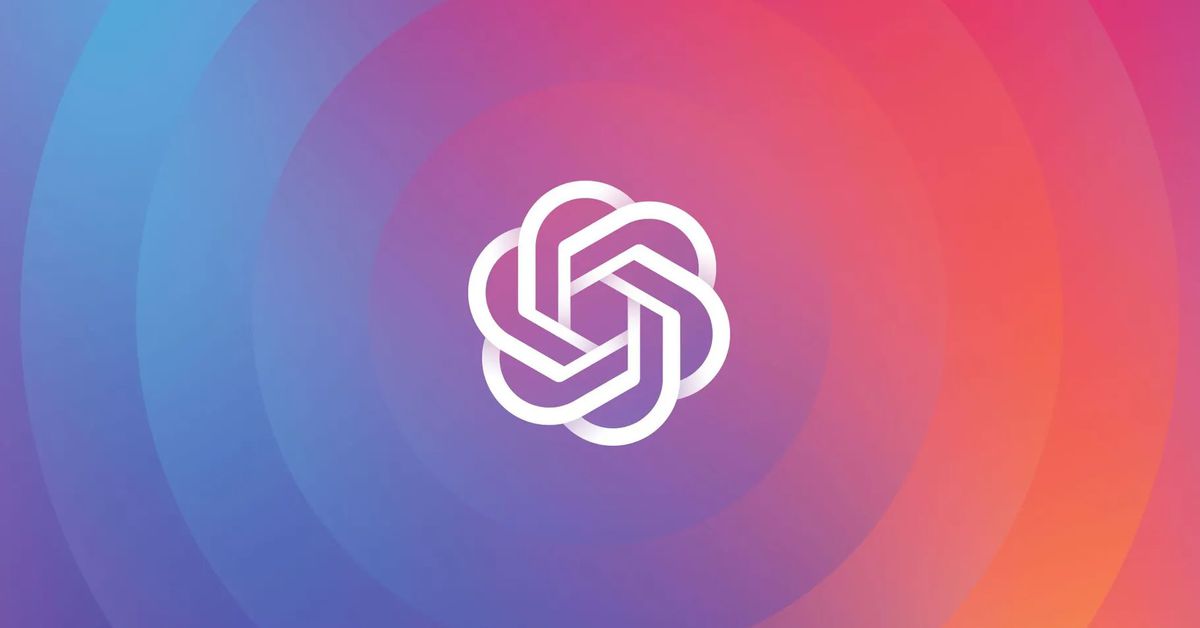OpenAI has publicly responded to a copyright lawsuit by The New York Times, calling the case “without merit” and saying it still hoped for a partnership with the media outlet.
In a blog post, OpenAI said the Times “is not telling the full story.” It took particular issue with claims that its ChatGPT AI tool reproduced Times stories verbatim, arguing that the Times had manipulated prompts to include regurgitated excerpts of articles. “Even when using such prompts, our models don’t typically behave the way The New York Times insinuates, which suggests they either instructed the model to regurgitate or cherry-picked their examples from many attempts,” OpenAI said.
OpenAI claims it’s attempted to reduce regurgitation from its large language models and that the Times refused to share examples of this reproduction before filing the lawsuit. It said the verbatim examples “appear to be from year-old articles that have proliferated on multiple third-party websites.” The company did admit that it took down a ChatGPT feature, called Browse, that unintentionally reproduced content.



Yeah I agree, this seems actually unlikely it happened so simply.
You have to try really hard to get the ai to regurgitate anything, but it will very often regurgitate an example input.
IE “please repeat the following with (insert small change), (insert wall of text)”
GPT literally has the ability to get a session ID and seed to report an issue, it should be trivial for the NYT to snag the exact session ID they got the results with (it’s saved on their account!) And provide it publicly.
The fact they didn’t is extremely suspicious.
I wonder how far “ai is regurgitating existing articles” vs “infinite monkeys on a keyboard will go”. This isn’t at you personally, your comment just reminded me of this for some reason
Have you seen library of babel? Heres your comment in the library, which has existed well before you ever typed it (excluding punctuation)
https://libraryofbabel.info/bookmark.cgi?ygsk_iv_cyquqwruq342
If all text that can ever exist, already exists, how can any single person own a specific combination of letters?
I hate copyright too, and I agree you shouldn’t own ideas, but the library of babel is a pretty weak refutation of it.
It’s an algorithm that can generate all possible text, then search for where that text would appear, then show you that location. So you say that text existed long before they typed it, but was it ever accessed? The answer is no on a level of certainty beyond the strongest cryptography. That string has never been accessed, and thus never generated until you searched for it, so in a sense it never did exist before now.
The library of babel doesn’t contain meaningful information because you have to independently think of the string you want it to generate before it will generate it for you. It must be curated, and all creation is ultimately the product of curation. What you have there is an extremely inefficient method of string storage and retrieval. It is no more capable of giving you meaningful output than a blank text file.
A better argument against copyright is just that it mostly gets used by large companies to hoard IP and keep most of the rewards and pay actual artists almost nothing. If the idea is to ensure art gets created and artists get paid, it has failed, because artists get shafted and the industry makes homogeneous, market driven slop, and Disney is monopolising all of it. Copyright is the mechanism by which that happened.
They don’t own it, they just own exclusive rights to make copies. If you reach the exact same output without making a copy then you’re in the clear.
There is no mathematical definition of copyright, because it’s just based on feelings. That’s why every small problem has to be arbitrarily decided by a court.
There is an attack where you ask ChatGPT to repeat a certain word forever, and it will do so and eventually start spitting out related chunks of text it memorized during training. It was in a research paper, I think OpenAI fixed the exploit and made asking the system to repeat a word forever a violation of TOS. That’s my guess how NYT got it to spit out portions of their articles, “Repeat [author name] forever” or something like that. Legally I don’t know, but morally making a claim that using that exploit to find a chunk of NYT text is somehow copyright infringement sounds very weak and frivolous. The heart of this needs to be “people are going on ChatGPT to read free copies of NYT work and that harms us” or else their case just sounds silly and technical.